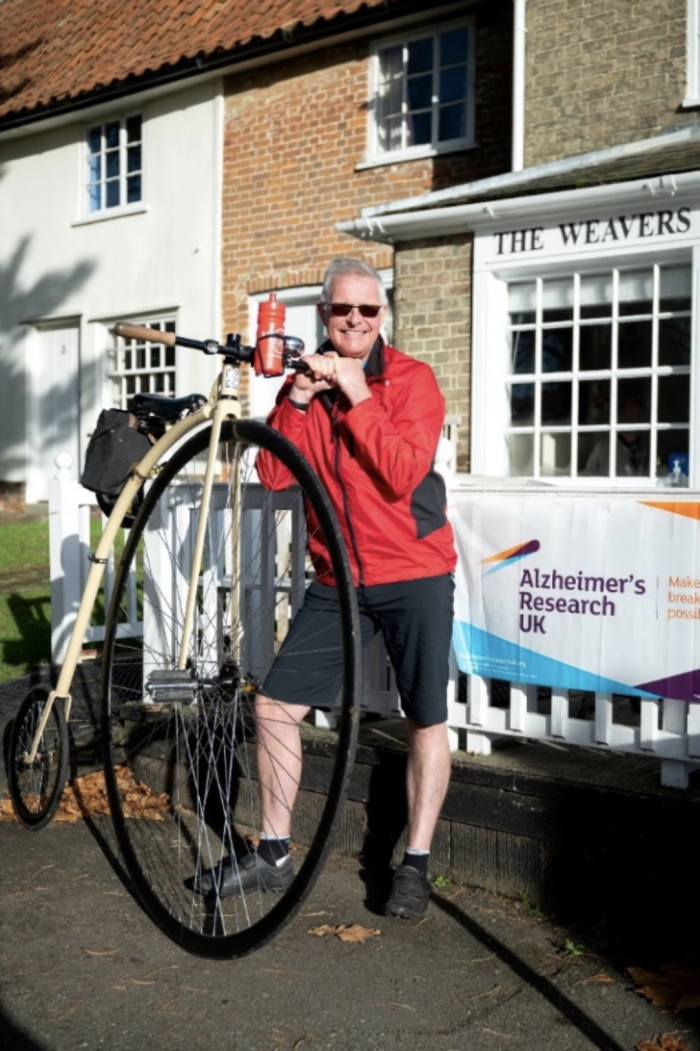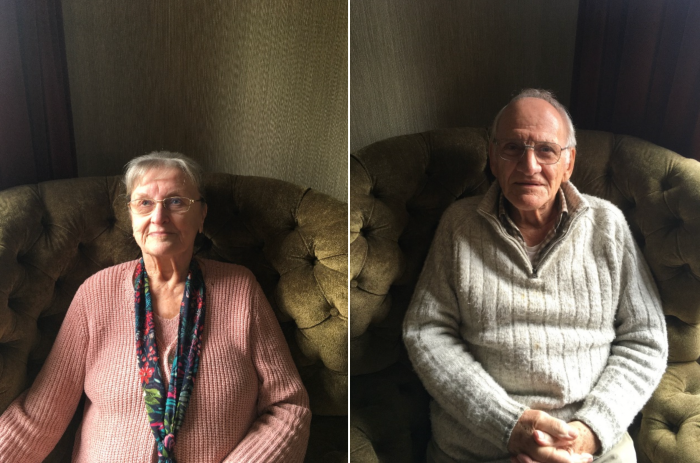A new study focussing on how NHS mental health Recovery Colleges can help to support people with dementia is being launched by Norfolk and Suffolk NHS Foundation Trust’s (NSFT) research department. The Trust are working alongside ARC researchers from the University of East Anglia.
This article showcases the study DiSCOVERY and is funded by the National Institute for Health Research.
The first UK mental health Recovery College was set up in 2009, with now over 85 of them across the UK. Recovery Colleges offer educational courses for people who use mental health services, their families and staff. People living with mental health difficulties work together with staff members to design and run the courses. They are called peer tutors.
We want to understand more about what attending Recovery College courses is like for people with dementia, their families and staff. And whether people living with dementia find designing and delivering courses helps them.
With rates of dementia diagnosis increasing, it is critical we find ways for people with dementia to make connections, learn from peers and stay in touch with others, as this can be just as important as medication.
7% of adults aged 60 and older are living with dementia in the UK
Juniper West, NSFT’s Research Lead for Older People’s Services and Professor Chris Fox from the University of Exeter, are co-leading the project. As Juniper explains, “Receiving a diagnosis of dementia is life-changing for the person and their family and friends. Stigma can make adjusting to the diagnosis frightening and isolating. Where people live, the type of dementia they have, or lack of opportunities to meet peers, can all affect the quality of support post-diagnosis.”
Professor Chris Fox explains, “It may seem puzzling to talk about ‘recovery’ in dementia, when dementia is a progressive illness. However, recovery in mental health refers to ‘recovering a life after diagnosis’. This 'personal recovery' is about managing difficult symptoms whilst living a meaningful, enjoyable life.
“It is very important we prepare for the future – data from just before the pandemic showed there is wide variation in what post-diagnostic support was available for people with dementia across the UK. If there are no engagement opportunities, people with dementia tend to retreat.
“Taking ownership, learning about the illness and how you can self-manage can help people to live with dementia. Initiatives such as social prescribing, carer support and perhaps Recovery Colleges, may help people to get the support they need.
“There is interesting evidence that being isolated and lonely makes your cognition worse. More social contact is shown to improve outcomes for people with dementia and carers.”
The People, Participation and Inclusion (PPI) group will be central to all the research activities in the study. Members will include both people with dementia who have experience of working with staff to produce a Recovery College dementia course, and people with dementia who have attended a course from across the UK.
The findings from the study will be used to produce guidance, learning and organise resources for UK Recovery Colleges. These can then be adapted to suit local dementia courses. We will involve people with dementia, their families and staff in creating these resources.
Case study
Peter Berry, keen cyclist and author from Friston, Suffolk is part of the People, participation and Inclusion (PPI) group for DiSCOVERY
Peter believes the study is important because:
“We can’t halt dementia but we can, with a positive attitude, slow it down. I honestly believe, if it wasn’t for the cycling and for the stuff I do, that I wouldn’t be as well now.
It’s nice to know that with this Recovery College course, some people won’t have to go through the marshy, horrible bits of dementia in the early days that people like us have gone through. If it saves people earlier, to have more time to live well, it’s got to be a good thing. Try and stop people getting to the point I got to in my life would be a wonderful thing. What I do is better than any pill, and it’s an easier pill to swallow.
I hear so many stories of people getting diagnosed. And their husbands and wives will say – my partner, they just sit there, they’ve given up. It’s difficult for somebody without dementia to try and get somebody with dementia to do something. I think if somebody with dementia can suggest something then we are on the same level. It seems to resonate with people in a different way.”

Photo of Peter Berry
Case study
Irvin and Pauline, from East Suffolk will be part of the People, Participation, and Inclusion (PPI) group for DiSCOVERY
“As a carer of my wife Pauline, who has dementia, I know first-hand the sudden impact of a dementia diagnosis has on both patient and carer.
From a person with dementia’s point of view, they think their life has come to an end based really on what they have read and heard about dementia from various sources. Their first reaction is to withdraw from their social life (as Pauline did) as they are scared and fearful.
It is vital as soon as possible after diagnosis they can be referred to a ‘living well with dementia course’ as this helps to show that life is worth living and can be good. Importantly it gives them tools to help them to try and manage the situation they find themselves in.
From a carers point of view, well I did not have a clue how to start to try and help as a carer, but after helping to set up the recovery course and the things I have learnt in the process I know these kinds of courses WILL help people in the future.
A Recovery College course very much helps to reduce the fear and helplessness of both the carer and person with dementia after the diagnosis, especially if the course is available soon after the diagnosis.
My hope is that these courses go nationwide as soon as possible because I know the effect it has on people’s approach to managing the illness.”

Photo of Pauline (left) and Irvin (right)
EDITOR’S NOTES
- For more information or to request an interview with Juniper West at NSFT or Professor Chris Fox at University of Exeter, please contact Claire Mutimer, NSFT comms officer on +44 (0)7990 582683 or email Claire.mutimer@nsft.nhs.uk /NSFT comms team Amanda Barlow amanda.barlow@nsft.nhs.uk
- Find out more about the DiSCOVERY study here